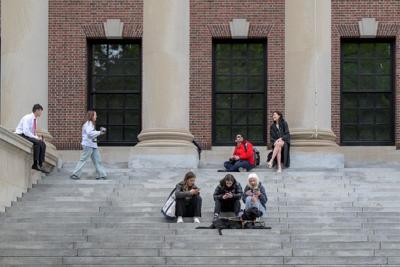The Trump Administration has intensified its scrutiny of Harvard University, officially referring the esteemed institution to the Justice Department amidst persistent and severe allegations of Antisemitism and discrimination against Jewish students.
This significant escalation follows a comprehensive investigation concluded in late June, where the administration asserted that Harvard University had demonstrably violated federal Civil Rights law. The alleged failures stemmed from inadequate responses to reported instances of harassment targeting Jewish and Israeli students on its campus, painting a concerning picture of the university’s compliance.
The broader implications of this referral extend beyond the immediate allegations, with critics and civil rights experts widely viewing these governmental probes as potential overreaches. They contend such actions could serve as a pretext for asserting federal control over academic institutions, raising questions about governmental influence in higher education.
Furthermore, these critics, alongside some faculty members, have voiced profound concerns that such interventions might inadvertently undermine foundational principles of Academic Freedom and free speech within the university environment. This could foster an atmosphere of apprehension, potentially chilling open discourse and critical inquiry.
Harvard University, for its part, has been embroiled in a prolonged and often contentious legal battle with the Trump Administration, primarily seeking the restoration of billions of dollars in federal funds. These funds are crucial for its extensive medical research and other vital programs, highlighting the financial stakes involved in the dispute.
A recent letter, dispatched by the U.S. Department of Health and Human Services to Harvard’s leadership, unequivocally stated that “The parties’ several months’ engagement has been fruitless,” indicating a complete breakdown in direct negotiations. This communication underscores the depth of the impasse between the two entities.
Consequently, the Office for Civil Rights (OCR) declared it had “no choice but to refer the matter to DOJ to initiate appropriate proceedings to address Harvard’s antisemitic discrimination,” signaling a significant legal escalation. This move pushes the long-standing dispute into a new and potentially more adversarial phase, with the Justice Department now formally involved.
Counter-arguments have emerged from various groups, including some Jewish organizations, who contend that the Trump Administration often inaccurately conflates criticism of Israel’s military actions in Gaza and and its occupation of Palestinian territories with Antisemitism. They argue for a clearer distinction between political criticism and genuine hatred.
These groups also assert that advocating for Palestinian rights is distinct from supporting extremism, suggesting a nuanced perspective often overlooked in the broader discourse surrounding these allegations. This highlights the complex interplay of international politics, free speech, and allegations of discrimination within academic settings.






Leave a Reply